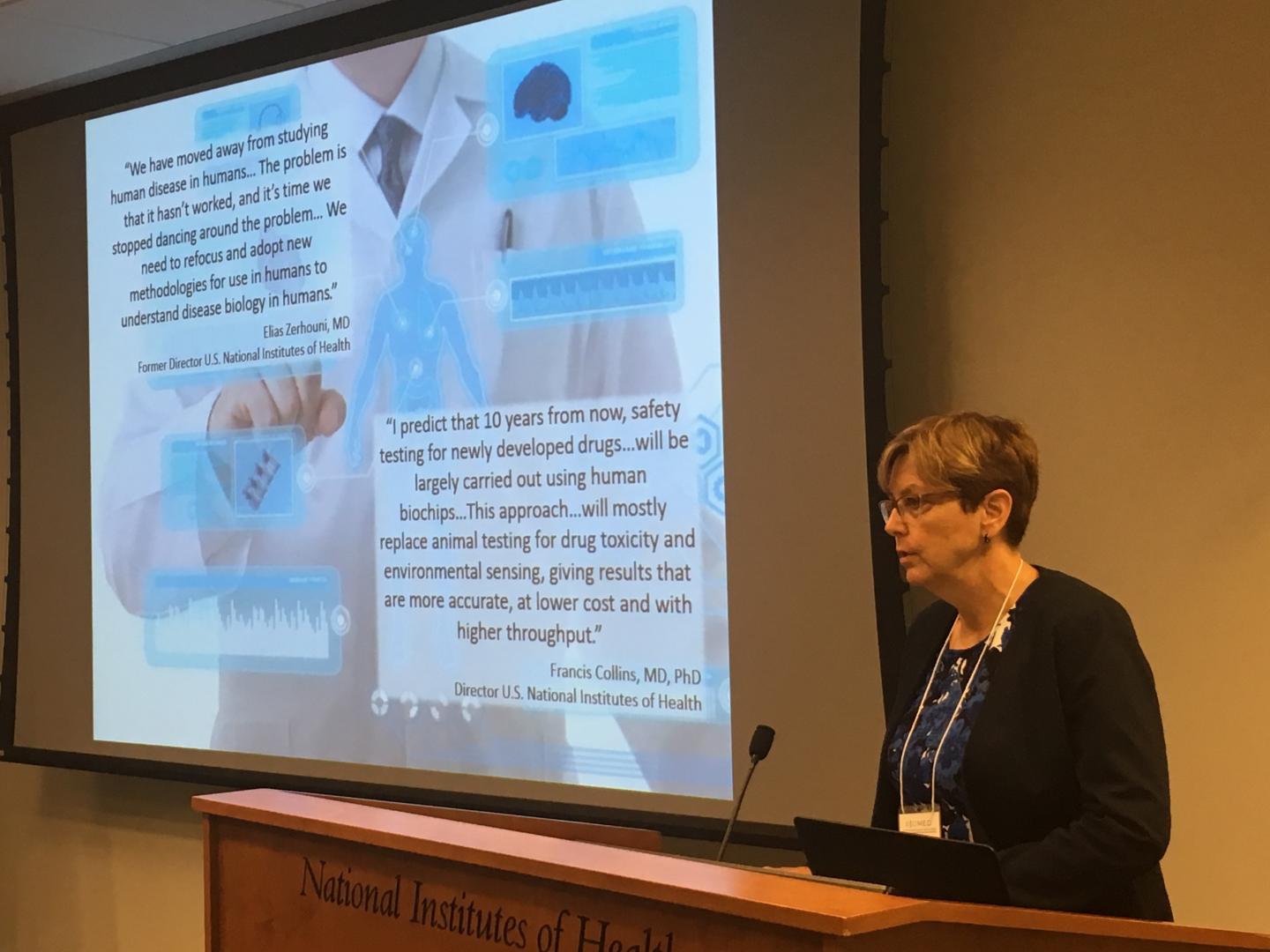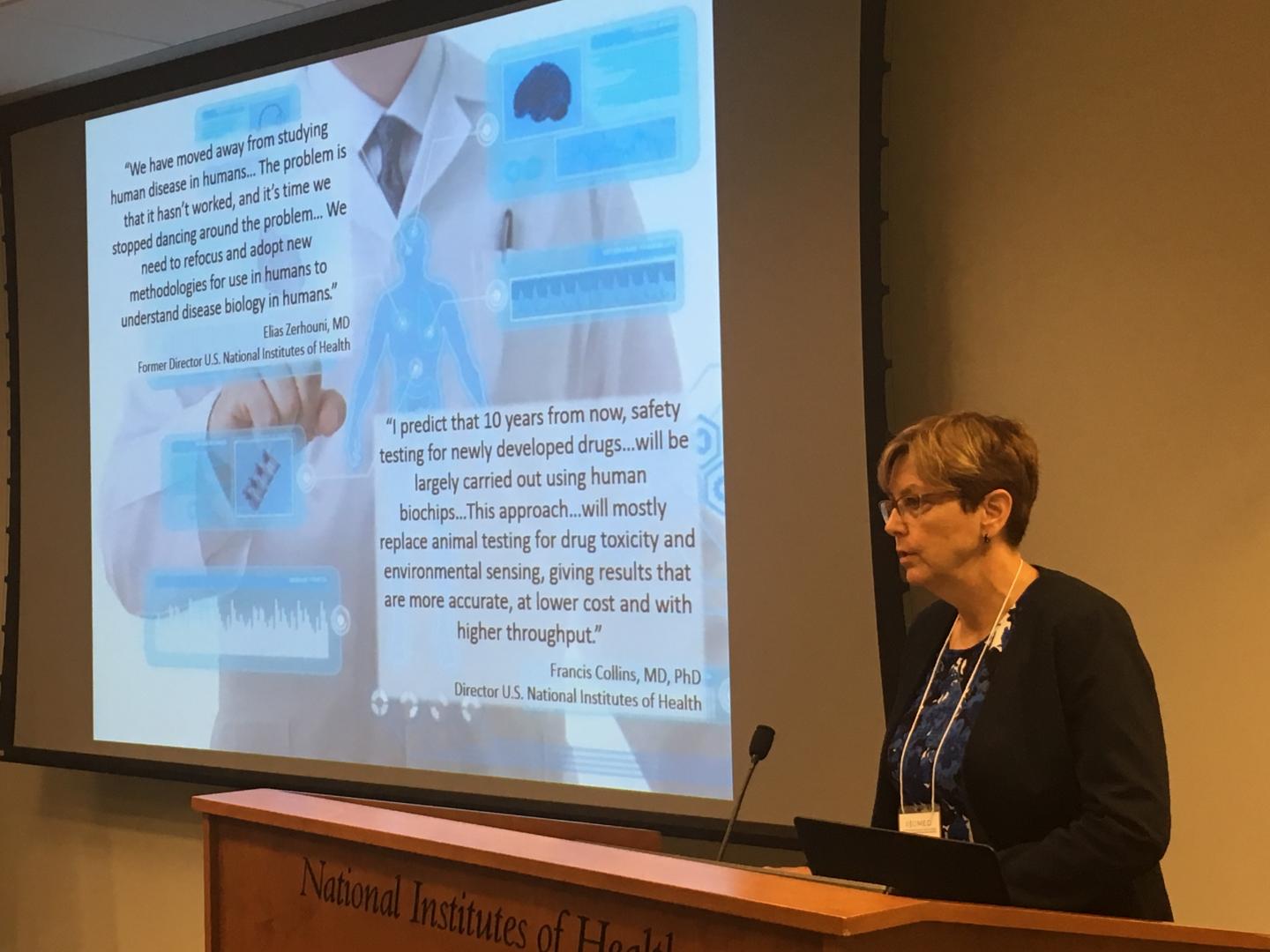
Credit: Troy Seidle HSI
Washington DC (June 7, 2018) – The average pre-approval cost of research and development for a successful drug is estimated to be US$2.6 billion and the number of new drugs approved per billion US dollars spent has halved roughly every 9 years since 1950. More than 90% of drug candidates entering clinical trials fail to gain regulatory approval, mainly as a result of insufficient efficacy and/or unacceptable toxicity, because of the limited predictive value of preclinical, animal-based studies. Without significant intervention, the pipeline responsible for new drug production is predicted to dry up completely within 50 years.
However, great advances have been made in life science technologies and computer science, increasing our ability to generate and analyze data, and there is a growing recognition that, to improve the success rate, a stronger focus on human-relevant data is needed. Proceedings of a multistakeholder workshop co-organized by The Humane Society of the United States, Humane Society International and the National Institutes of Health under the auspices of the global BioMed21 Collaboration (biomed21.org) is published in Drug Discovery Today, presenting a comprehensive overview of existing efforts to prioritize human-based biology for health research and proposing key recommendations required to revitalize the drug discovery process.
Report co-author Dr Kate Willett, Senior Director for Science and Regulatory Affairs for HSUS and HSI, said: "Through the BioMed21 collaboration, we are stimulating strategic scientific dialogue on regional and global levels, bringing key stakeholders together to explore and develop consensus recommendations around barriers, opportunities, and priorities for future research funding. Improvements to the drug development process are possible, but stakeholders need to work together to shift toward improved understanding of disease pathways and networks in humans, together with continued development and exploitation of human-relevant enabling technologies such as microphysiological systems and computational systems biology."
In 2007, the National Academy of Sciences first articulated how a transition to an approach based on explicit delineation of biological pathways could improve chemical safety assessment. Since then, the Adverse Outcome Pathway (AOP) framework has developed into a central tool for realizing this vision, and beyond. Such a framework could provide a more predictive and effective rubric for understanding disease pathophysiology across levels of biological organization, and for targeting and evaluating new interventions using the growing toolbox of modern, human-specific tools for biomedical research.
The forthcoming publication makes key recommendations for enhancing drug discovery and development including the need for interdisciplinary and international collaboration and cooperativity. Workshop participants – which included experts from 6 NIH institutes, 5 FDA centers, and other key stakeholders – were in agreement that, in order to incentivize global data sharing, there is a need for standardized data and consistent ontologies and that global funding calls should prioritize the human-based methods, such as induced pluripotent stem cells, organoids and organs-on-chips.
###
Reference: Marshall, Austin, Casey, Fitzpatrick and Willett, Recommendations toward a human pathway-based approach to disease research. Drug Discovery Today https://www.sciencedirect.com/science/article/pii/S1359644617304737
Media Contact
Lindsay Marshall
[email protected]
07-719-531-675
Related Journal Article
http://dx.doi.org/10.1016/j.drudis.2018.05.038





